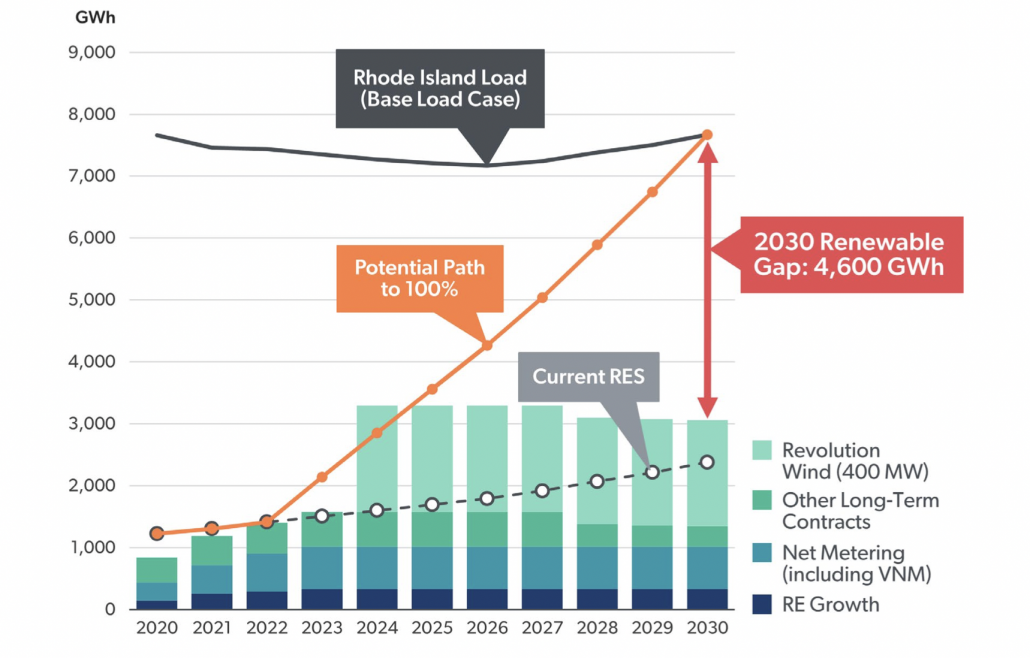Renewable Energy Policies in Rhode Island
Two weeks ago we did a blog post on all the solar goals and initiatives in Massachusetts. Now, it is our Rhode Island’s customer’s turn! Below are some of Rhode Islands’s renewable energy policies, solar incentives, and targets that the state has put forth.
In 2020, Rhode Island set an ambitious goal to have all of their electricity come from renewable sources by 2030. In 2020, 12% of Rhode Island’s electricity came from renewable sources (half of that being utility scale solar power!). So in order to reach its goal, Rhode Island will need 4,600 GWh of additional renewable energy. Though this seems like a lot, it is certainly do-able! Below is a graph of what emissions would look like making no changes, and what they would look like if we meet our goal.
The Renewable Energy Growth Program
The Renewable Energy Growth (REG) Program, is a feed-in tariff program designed to promote new renewable energy projects in Rhode Island. A feed-in tariff is an incentive that pays customers a fixed rate per kilowatt hour for the renewable energy they provide to the grid. Under this program, National grid pays customers an incentive rate of 23.45 cents to 29.65 cents per kilowatt hour. The purpose of the REG is to incentivize both small scale and commercial projects, to help reach the renewable energy goal. Additionally, the federal solar tax credit applies to all Rhode Island solar projects, which also incentivizes the goal.
Renewable Energy Standard (RES)
In order to reach this goal, Rhode Island government will have to work on its Renewable Energy Standard (RES). Updated in 2016, this standard has a target for 35% of energy to be produced by renewable sources by 2035. Clearly, this policy is a little outdated based on the new goal of 100% by 2030. However, this policy combined with other incentive policies will work together to help reach the 100% by 2030 goal.



